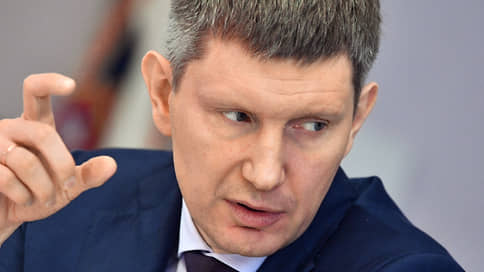Detour maneuver at the counter – Newspaper Kommersant No. 173 (7374) of 09/20/2022
[ad_1]

By mid-September, the import of goods to the Russian Federation under the parallel import regime is estimated at 1.3 million tons and about $9.3 billion. In general, according to the updated forecast, the figure is expected to grow to $20 billion by the end of the year against previous estimates of $16 billion, while the list may be expanded to include alcoholic beverages – a decision must be made before the end of the month. Other exceptions – pharmaceutical products and food products – are planned to be maintained for the time being: there is no shortage, and the supply of medicines is not limited by sanctions. Experts note that the “parallel” import of consumer goods can slow down inflation, but without the import of equipment, it threatens Russian business, which was counting on abandoned markets.
The volume of parallel imports for three and a half months amounted to more than 1.3 million tons for $9.3 billion, the head of the Ministry of Economy Maxim Reshetnikov said on Monday at a meeting of the State Duma committees on economic policy and control. According to him, this supported consumer demand primarily for non-food products and contributed to the recovery of consumer imports. However, $ 9 billion is not a very significant amount: before the collapse in the first quarter of 2022, Russia’s dependence on imports of consumer goods in the first nine months of 2021 increased to 40%, the highest since 2014, and for manufactured goods – up to 53%, and only in July 2022 year, as Kommersant wrote, the entire import of goods and services to Russia amounted to $ 22 billion, according to mirror foreign trade data.
Nevertheless, a recovery in the import of consumer goods has indeed been observed since the end of the second quarter of 2022 (see “Kommersant” of September 16). This is confirmed by the Ministry of Finance, which is recording a sharp slowdown in the fall in tax revenues from imports to the budget – to minus 26.9% in August from minus 43.7% yoy a month earlier, analysts estimated Telegram channel MMI. “If the growth of imports is sustainable (we think that for consumer goods – yes, for investment – no), then this will have a disinflationary effect on the economy through filling the markets with cheaper (due to the exchange rate) imported goods,” they add.
In contrast to the minister, who notes that gray schemes “will support consumer demand,” analysts point out that “flooding the country with cheap imports could deal a heavy blow to domestic producers, many of whom may have been prematurely happy about the market’s release.”
The import of products without the permission of copyright holders and bypassing official distributors has been allowed since May 6 for more than 50 categories of goods and 1.6 thousand brands, including cars and spare parts, Apple and Samsung equipment, clothing and industrial equipment. Legalization was explained by the fight against shortages after the departure of a number of foreign suppliers and manufacturers from the Russian Federation – according to ACRA estimates, the compiled list covers about 36% of all deliveries of goods in monetary terms (see “Kommersant” June 24). According to the Federal Customs Service, parallel imports are expanding on average per month by 18% in terms of weight and 20% in terms of value – for example, 383,000 tons were imported in August. As Deputy Prime Minister and Minister of Industry Denis Manturov said in an interview with Izvestia, the forecast for parallel imports has already been increased from $16 billion to $20 billion rubles. until the end of the year. The mechanism itself, calculated until the end of 2022, was decided to be extended to 2023 (see “Kommersant” dated September 3).
The next adjustment of the list is also being discussed, in particular, the permission of parallel imports of certain brands of alcoholic beverages (should be adopted before the end of September, otherwise retail chains will not have time to purchase alcohol for the New Year holidays, the Ministry of Industry and Trade proposes to allow the import of Moet champagne, Absolut vodka, Henessy and Jameson whiskey, etc. . P.). The Retailers Association, which initially pushed for the inclusion of alcohol in parallel imports, said on Monday that it would help prevent “acute shortages.” It is not yet planned to include food products (there is no shortage) and pharmaceutical products (its supplies are not prohibited) in the list of parallel imports.
[ad_2]
Source link






